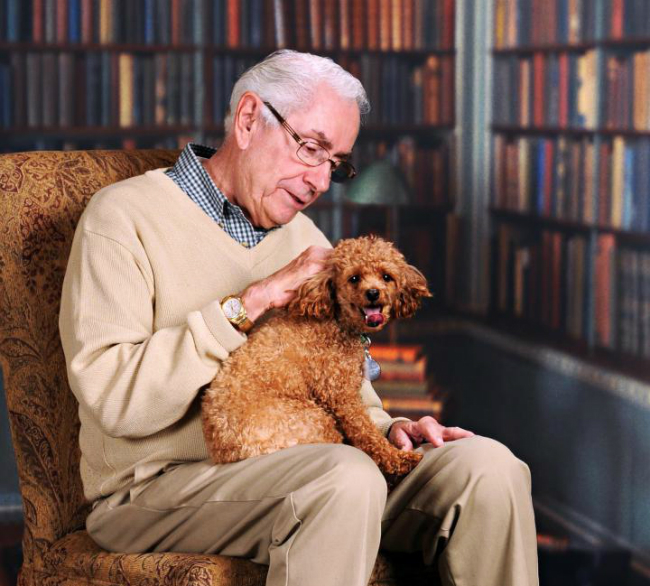
Dogs are often referred to as man’s best friend, and this sentiment holds particularly true for the elderly. As we age, our physical and mental well-being becomes increasingly important, and the companionship of a dog can provide countless benefits. In this article, we will explore the profound ways in which dogs assist the elderly, promoting both their physical health and emotional well-being. From reducing feelings of loneliness to increasing physical activity, the bond between dogs and the elderly is a source of joy and enrichment. Let’s delve into the remarkable benefits that these furry friends bring to the lives of older adults.
Companionship and Reducing Loneliness
Loneliness and social isolation are significant challenges faced by many elderly individuals. The loss of loved ones, decreased mobility, and limited social interactions can contribute to feelings of loneliness and depression. Dogs, with their unwavering companionship, offer a solution to these emotional burdens. The presence of a dog provides constant company and unconditional love, helping seniors combat loneliness and fostering a sense of purpose.
Increased Physical Activity and Exercise
Maintaining an active lifestyle becomes increasingly crucial as we age. A Sun City Center Senior Fitness expert told me dogs, being naturally energetic and in need of regular exercise, encourage older adults to stay physically active. Daily walks with a furry friend not only contribute to cardiovascular health but also promote weight management and help alleviate conditions such as arthritis. The responsibility of taking care of a dog can motivate seniors to engage in outdoor activities, ensuring regular exercise that keeps their bodies healthy and strong.
Enhanced Mental Stimulation
The cognitive benefits of owning a dog are remarkable. Dogs stimulate the mind and keep older adults mentally sharp. Engaging in training sessions, teaching tricks, and simply interacting with their canine companions challenges the brain, improving memory, problem-solving skills, and cognitive function. Additionally, dogs provide a sense of structure and routine, which can be particularly helpful for seniors with memory-related issues, providing them with a sense of purpose and stability.
Emotional Support and Stress Relief
The emotional support provided by dogs is immeasurable. These four-legged companions have an uncanny ability to sense human emotions and offer comfort during difficult times. For elderly individuals facing stress, anxiety, or even grief, the presence of a dog can provide immense relief. The act of petting a dog releases oxytocin, a hormone associated with feelings of happiness and relaxation. This interaction helps reduce stress levels and promotes emotional well-being, acting as a natural form of therapy.
Increased Social Interactions
Owning a dog naturally opens doors to social interactions. Taking a dog for a walk or visiting a dog park creates opportunities for the elderly to connect with other dog owners and fellow animal enthusiasts. Conversations sparked by a shared love for dogs can lead to new friendships and combat the isolation often experienced by seniors. Dogs serve as wonderful icebreakers, facilitating social engagement and providing a sense of community for older adults.
Sense of Security and Safety
Living alone can sometimes leave the elderly feeling vulnerable. Dogs provide a sense of security and protection, offering both physical and emotional safety. The presence of a dog acts as a deterrent to potential intruders, assuring seniors that they are not alone. Furthermore, dogs can be trained to respond to emergencies, such as fetching a phone or activating a medical alert system. This added layer of protection helps alleviate fears and allows older adults to live more independently and confidently.
Conclusion
The bond between dogs and the elderly is a truly special one. From companionship and emotional support to increased physical activity and improved mental stimulation, the benefits of having a dog in one’s life are profound. These loyal companions bring joy, purpose, and a renewed zest for life to the elderly.

